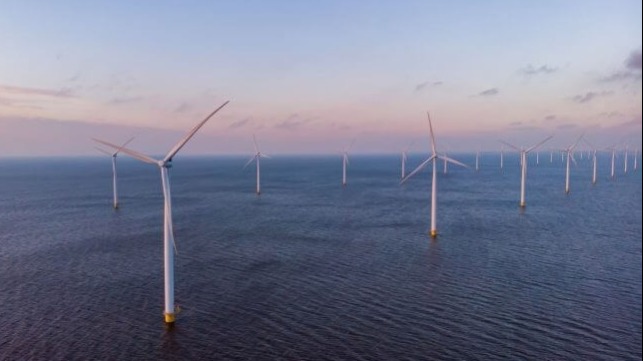BP and EnBW Study Building Sustainable Wind Farm Vessels in Scotland

BP and EnBW, which are partnered to develop three offshore wind farms in the UK, are joining a project to investigate the use of zero or low-emission support vessels for their wind farms. The project is part of a growing effort looking to apply sustainability to all portions of the lifecycle for the operations of renewable energy assets.
The companies plan to build four vessels in Scotland to be used to support their wind farms which are currently in the planning stages. According to Richard Haydock, project director at BP for UK offshore wind how the vessels will be powered is equally important. They will be evaluating different options for the planned vessels.
“Alongside delivering green energy, EnBW and BP are keen to further reduce the wind farms’ carbon footprint throughout the operational phase,” said Burkhard Roemhild, Project Manager at EnBW for two of the projects. “The study will be key in evaluating different options and eventually finding the best solution, both for the projects and the overall environment.”
The four-month project will analyze infrastructure, current regulation, supply chains and technology such as internal combustion engines, fuel cells and batteries, and fuels such as biodiesel, electric and hydrogen, before providing recommendations for support vessels. The feasibility study will provide an overview of the opportunities and challenges associated with introducing new fuels into offshore wind SOVs and recommend appropriate technology developments and supply chain opportunities.
The effort will be led by EnBW and BP working with the Clean Maritime team at the Offshore Renewable Energy Catapult. ORE was established in 2013 by the UK Government and is one of a network of Catapults set up by Innovate UK in high-growth industries with its focus on all aspects of offshore renewable energy. Other partners in the project include the University of Strathclyde, the University of Edinburgh, and the Manufacturing Technology Centre.
“The commitment from partners to investigate both net zero technology and local build for these vessels is an exciting opportunity for UK industry, which aligns with the ambitions outlined in the Refreshed National Shipbuilding Strategy,” said Lauren Hadnum, Clean Maritime Manager at the ORE Catapult. “The rapid growth in offshore wind across the UK is driving the need for innovation across all aspects of industry, including accelerating decarbonization of O&M vessels.”

that matters most
Get the latest maritime news delivered to your inbox daily.
The vessels would be used to support the three large projects in the planning stage that will be jointly developed by EnBW and BP. Two of the sites are located in the Irish Sea approximately 18 miles offshore. Survey work commenced in 2022 for the Morgan and Mona projects which are expected to have a 3 GW capacity. At the beginning of 2022, the partnership was also successful in its bid for a site nearly 40 miles off the coast of Aberdeen in Scotland which is expected to have a 2.96 GW capacity. The wind farms will require maintenance support from Service Operation Vessels (SOVs) and Crew Transfer Vessels (CTVs).
Similar projects also recently launched in the UK and Norway looking at the potential of using electricity from wind farms to charge electric vessels that would be used to service the sites. The organizers highlighted that the challenge is that wind farms are too far from shore exceeding the current capabilities of batteries to support SOVs and CTVs only charged at their homeports. The goal is to develop technology that would recharge the vessel’s battery while on-site servicing the wind farm.
